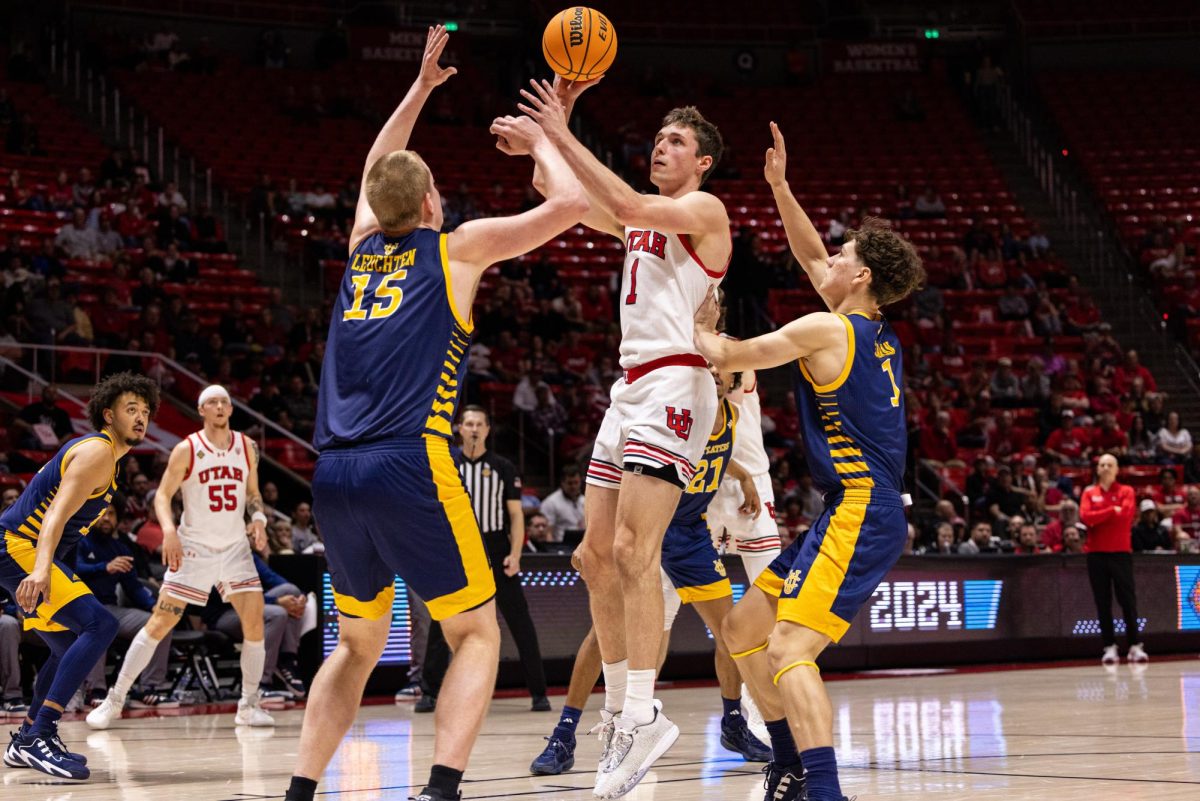For many young people, social media influencers, lifestyle bloggers and YouTubers are a more important part of their media diet than traditional journalists or celebrities. It is not hard to imagine a future where these content producers almost entirely replace time-honored media outlets. These online presences are often self-made, building direct relationships with fans while building a small business empire.
Bailey Carver is a blogger and Instagram personality who recently graduated from the University of Utah. In 2014, after completing her freshman year, Carver felt lost and unsure of her future. She decided to take time off and she spent more than a year traveling around Australia and Southeast Asia. Carver chose to create a blog documenting her travels and found she was passionate about it. When she returned to school and finished her degree, she kept working on online projects, slowly building a fan base. Now she has more than eleven thousand followers on Instagram and regularly updates her blog with posts covering a wide range of subject matter, including travel, fashion, advice and product recommendations. She is now able to blog and provides social media consulting as her full-time job. Carver’s blog allows her to combine a passion for writing while sharing her interests with a self-made community.
“I get to connect with so many people. I’ve made some of my best friends blogging,” Carver said.
Mariah Wellman is a first-year doctoral student studying communications at the U. Her research focuses on the role of social media influencers, especially in niches beyond the areas of fashion and beauty, which are still the primary subject matter of many influencers. In her work, Wellman investigates why these personalities earn a devoted audience and how these influencers operate as content producers and businesspeople.
Wellman says for many fans of influencers, intimacy and authenticity are a big part of the equation.
“It feels much more real than what you might consider a celebrity-fan relationship to be,” Wellman said.
Carver gave a similar answer. “Ten years ago, we were all obsessed with People magazine and really invested in these celebrities’ lives. This way, it’s people we can relate to a little bit more.”
Carver often directly communicates with her viewers, and she found that talking with other influencers helps her grow her own work. Viewers see content from their favorite personalities every day and this directness can build trust and foster a sense of friendship.
Fans may not realize how much is left out from a perfectly manicured Instagram profile, however.
“You and I as a viewer might feel more connected to them because they are sharing their whole lives, even though they’re not,” Wellman said. “We know that through research — it’s very constructed what they decide to put on social media.”
Wellman’s research shows that influencers often leave out negativity from their content. They will often focus exclusively on messages that fit their brand of self-love, positivity and inspiration — though of course, the reality is much messier and more complicated.
Wellman found that many bloggers covering travel can have vastly different experiences than the average person. Successful social media personalities will have itineraries pre-planned by destination marketing organizations. These companies will pay influencers to visit a particular city and work with local restaurants, tourist sites and hotels to give the influencer a picture-perfect, sanitized view of the place they visit.
“It’s this constructed or crafted experience where they’re only seeing the best of that particular town or city or island,” Wellman said.
Marketers then ask influencers to post a certain amount of content about the destination. Influencers are not given specific guidelines about what they share, but audiences will usually have no idea that the content they see online is not representative of the typical experience.
While many influencers are what Wellman calls a “microcelebrity,” they can also share similarities with journalists. There is no guarantee that an internet personality will uphold the same standards, however. Travel writers working for an established magazine or newspaper are subject to a “codified set of ethics.” Influencers, meanwhile, can vary greatly in how they handle issues like sponsored content or impartiality. Carver admits the line between journalism and entertainment can be blurry in her own work. She strives to make her work accurate and fact-based, but she also said, “I am not a news reporter.”
Wellman sees several possible benefits to the increasing power of social media celebrities.
“Brands are able to get higher return on investment. We know from research that followers feel so much more closely connected to that individual, they are willing to buy or do whatever that influencer might say,” Wellman said.
She also points out how influencers can be useful for the viewers they connect with. She says these content producers “are all famous within their specific niche. Even if it’s something really strange that you don’t think a lot of other people are into, there’s usually someone with at least a couple thousand followers who would identify as an influencer [with] expertise in that area.”
Carver said blogging allows her to express herself while also making a positive impact in other’s lives.
“I write for who I wish I’d had around, and to answer questions I didn’t have the answer to a year ago,” Carver said. She hopes that her work inspires people to live their “best, happiest life,” and her blog inspires people to follow their own passions.
Wellman also offers some reasons for concern.
“You don’t always know what’s real and what’s not. I’ve spoken to influencers who say, ‘yeah, I don’t try every product I promote,’ but they wouldn’t tell that to an audience.”
Wellman says this is particularly common with newer, less-established individuals. These people have less flexibility in choosing something to promote, but they often need credibility (and cash) to build their brand. Often, sponsored posts will not be clearly labeled, making it easy for viewers to mistake advertising as a personal endorsement or an honest review.
Carver acknowledges that sponsorship can be an issue in this field. She has seen influencers promote products that seem inconsistent with their other content and worries this disconnect could make her own work feel less authentic. She is careful to disclose when her content is sponsored, and in general tries to limit sponsorships. When she does promote something, she makes sure the product is something she genuinely uses and enjoys. At one point, she even stopped working with a dog food company after realizing her own dog disliked the product. Still, the line between advertising and editorial work can be blurry and this can be confusing to viewers.
In her work, Wellman said, “influence may be mistaken for affluence.” The relationship between money and online content is not always clear, but it is often essential. Many influencers are able to gain traction because they have a solid financial safety net. Creating a gorgeous social media platform is a deceptively expensive hobby — fashion writers may spend exorbitant amounts on designer clothes, and traveling internationally can easily break the bank. Plus, most bloggers start out working for free, sustained by another source of income. This means marginalized groups are often underrepresented and influencer content may be unattainable for large portions of the audience. The flip side is also true, however. Many influencers have thousands of followers and project the image of a charmed life, yet underneath the surface, they struggle with the financial realities of starting a business from scratch. Wellman says it is easy to underestimate the “financial and emotional labor” that goes into creating a successful social media presence.
No matter what you think of these influencers, they are likely here to stay. Wellman offers some practical advice for consumers to be more aware of what they view on social media. She says to watch out for subtle disclosures of sponsorship. If a company sends a person products or “collaborates” with them, that usually means they are giving financial compensation. Conversely, some will specifically note that a review of a product is not sponsored. Because disclosure practices differ from person to person, it is useful to note how certain influencers handle sponsorship. Wellman also advises a degree of skepticism when viewing product reviews. If an account posts a promotion at an odd time, like in the middle of the night, they may be trying to hide their endorsement while still receiving compensation. Certain promotions may also be at odds with an influencer’s normal content or values. While these influencers can provide meaningful, interesting content and promote new, unexpected voices, it is important to remember that when looking at this content, viewers should question what’s behind the glossy surface.





















